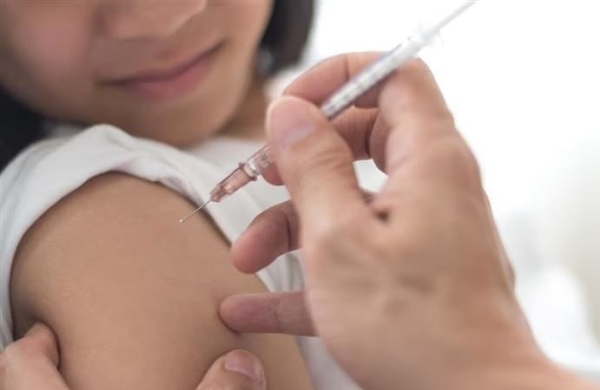
Photo: from the website rus.azattyq.org
Starting from October 1 of this year, girls aged 10-14 years old will be vaccinated against human papillomavirus (HPV) in Tajikistan.
According to the decree of the Government of the country, adopted on July 24 this year, the first vaccination of girls will last one month – until October 31.
In the future, vaccination of 10-year-old girls will be carried out on an annual basis as part of a regular health program.
The Ministry of Health and Social Protection of the Population of the Republic of Tajikistan has been instructed to include HPV vaccination in the national immunization calendar and ensure the timing of its implementation as part of routine immunization among 10-year-old girls. The Agency must also provide medical institutions in cities and districts of the republic with the HPV vaccine in a timely manner.
The Committee on Religion, Regularization of Celebrations, Traditions and Rituals under the Government of the Republic of Tajikistan has been instructed to explain to the population the importance of HPV vaccination.
A republican commission has been set up under the leadership of the Deputy Prime Minister to implement the government's decree. In addition to members of the Government of Tajikistan, it will also include representatives of the World Health Organization (WHO) and the United Nations Children's Fund (UNICEF) in Tajikistan.
The Ministry of Health of Asia-Plus reported that vaccination will be carried out free of charge in medical institutions at the place of residence, as well as in secondary schools.
What is the danger of HPV?
The human papillomavirus is a group of more than 200 different viruses that are transmitted from person to person, most often sexually. HPV can manifest itself in a variety of symptoms, including the formation of warts on the skin, genitals, anus, mouth and throat. Some types of HPV can be oncogenic, meaning they can increase the risk of cancer, especially cancer of the cervix and other organs. In Tajikistan, cervical cancer is the second most common among women after breast cancer.
In Tajikistan, cervical cancer is the second most common among women after breast cancer.
It is important to remember that HPV can be dangerous not only for women, but also for men and children, and a weakened immune system can worsen the risk of infection.
The HPV vaccine is recommended for girls and women aged 9 to 45 years, as well as for boys and men aged 9 to 26 years. Although men are mostly carriers of the virus. They infect, but they rarely get sick themselves. And for girls and women, the vaccine provides protection and prevention of the following diseases: cervical cancer, vulvar cancer, vaginal cancer and anal cancer.
The human papillomavirus vaccine will be most effective if it is given before sexual activity begins – then the immune system will be ready to fight the virus if the body ever encounters it.




